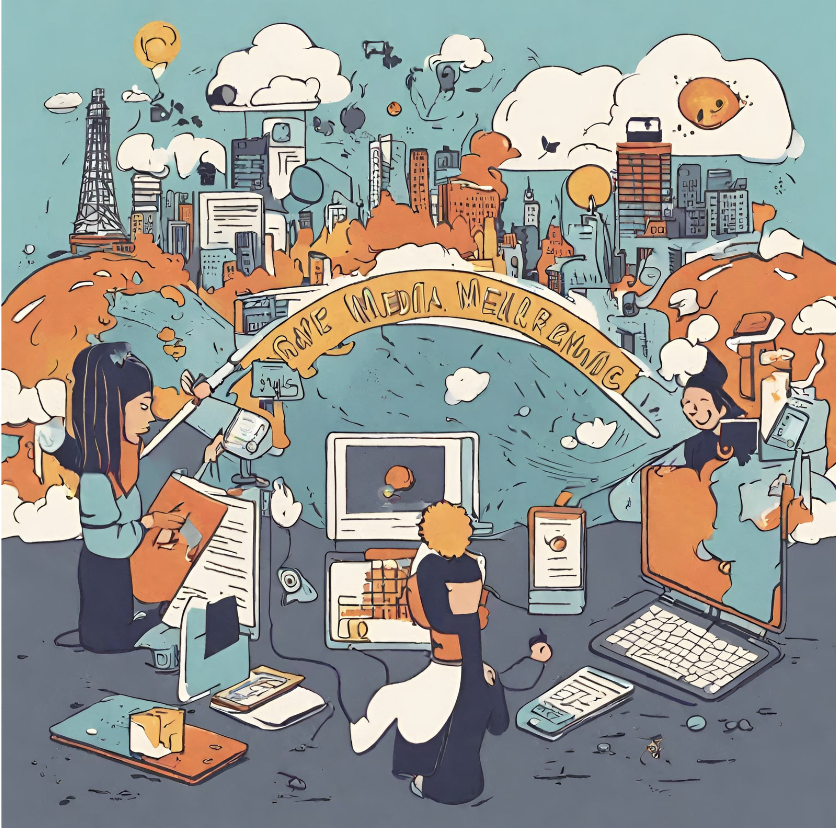
Author: Vaishnavi Moturi
In a world where social media reigns supreme among teenagers and young adults, forming their collective lexicon and influencing their daily lives, it can be difficult to discern the sincerity behind the flood of "activist" content that populates our feeds, such as the ubiquitous "Save the Turtles" posts featuring heart-wrenching images of plastic bottles and turtles. The dissonance lies in the fact that the effort put into crafting these ideas seldom translates into meaningful action. Mere posting, devoid of genuine commitment, rarely sparks transformative change.
The majority of individuals engaging in performative activism often play no role in creating the content they share; they simply repost. Unfortunately, this reposting is fleeting, with some followers only glancing at it for mere seconds - and of course, the individual themselves “expend little effort to make lifestyle changes that could result in actual aid to a movement” (Ngyuen, et al. 2022). Such performative activism floods social media, and the insincerity can be stark. The majority of the time, people’s words are just that - words that never transform into real action, into real change.
Of course, there are notable exceptions amongst the overwhelming sea of performative gestures, like Malala Yousafzai who not only engages with social media to spread information about the state of girls’ education but also simultaneously engages in spoken advocacy, partnering with global programs, fundraising, and making tangible change towards a more equitable future for girls everywhere.
However, the downside of thoughtless reposting extends to rampant misinformation. Although done with good intentions, the act of reposting is a painless one that requires no energy on the part of the individual to conduct thorough research about the issue themselves - infographics are often aesthetically pleasing enough that any misleading statistics could quickly go unnoticed. One notable example of such misinformation going viral is QAnon’s social media spread of false statistics and misinformation, which was ultimately covered up by its “uncontroversial tags like #savethechildren” (Ngyuen, et al. 2022).
Some argue that posting such content helps spread awareness - a commonly touted claim that holds little ground because most people are already aware of global warming, and this is analogous to posting about using strong passwords to spread awareness about cybersecurity attacks - we all know about the importance of not reusing passwords, yet most of us do it anyway.
Climate change has been exacerbated by humans in the last several centuries - this much is indisputable, and while social media can raise awareness in certain scenarios, true change comes from collective action, both on a personal and systemic level. Social media posting can often mask the hypocrisy present with many people who do post - most people, unfortunately, are not sustainably living and people who post about methane emissions from cows probably eat meat themselves and those who post about saving the turtles probably are guilty of using plastic in their lives. Of course, such change is difficult for every person to commit to. But, taking steps forward in that direction is infinitely more effective than posting digital content unsubstantiated by personal changes.
But others argue that if posting on social media is mainly ineffective, then what avenues exist for people to make a change in society without spending large amounts of money or time? Change can be wrought, on the individual level, if social media is used with sincerity. Social media can be a powerful avenue for illuminating underrepresented voices that generally do not have such a democratizing platform. Issues that might be stigmatized in society can often be spoken of freely on social media, where people who suffer from an illness or personal challenge can find themselves part of a community they would never have otherwise found. So, although social media can be a powerful catalyst for genuine societal change, it requires genuine engagement, thoughtful reflection, and a commitment to action from the individual.